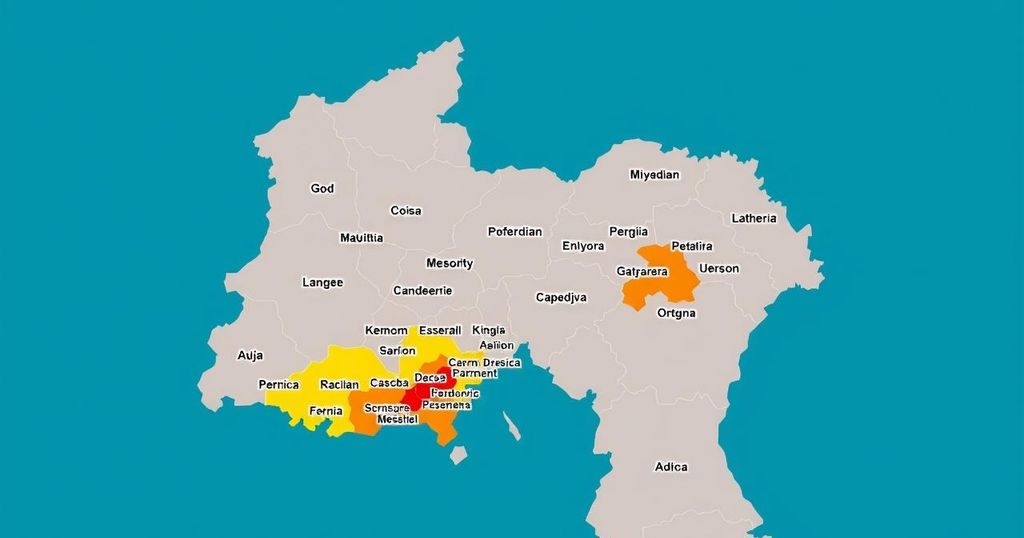NGO Incidents Overview – September 2024: Trends and Challenges in Humanitarian Operations
The INS recorded 114 NGO incidents in September 2024, showing a slight reduction, especially in the DRC and Nigeria. Key incidents included flooding in Nigeria affecting NGO operations, an IED attack in Somalia injuring civilians, detentions of NGO staff in Sudan, and increased access constraints in Mozambique. The situation remains unstable in the Middle East, notably in Lebanon and Gaza City.
In September 2024, the International NGO Safety Organization (INSO) documented a total of 114 incidents affecting non-governmental organization (NGO) personnel, indicating a minor decrease attributed to reduced incident volumes particularly in the Democratic Republic of the Congo (DRC) and Nigeria. Despite this decrease, tragic incidents, especially in Ukraine and the DRC, highlighted the persistent and specific risks encountered by NGO workers in these regions. In Nigeria, extensive flooding in the northeast is believed to have contributed to a drop in organized armed group (OAG) activity and criminal offenses impacting NGO operations. Meanwhile, in Somalia, an improvised explosive device (IED) planted by an unidentified group injured two civilians at an NGO project site in Jubaland. The situation in Sudan has become increasingly concerning, with numerous instances of detention of NGO staff by the Rapid Support Forces (RSF), suggesting a growing trend of interference with humanitarian efforts. Government operations against insurgent groups in Mozambique, where the Islamic State-Mozambique (IS-M) is reportedly regrouping in the southern regions, have also resulted in new limitations on access for NGO operations. In the broader Middle East, attention has shifted to the ongoing crisis in Lebanon, while violence escalates in the West Bank and significant military operations continue in Gaza City.
The Democratic Republic of the Congo, Nigeria, Somalia, Sudan, and Mozambique have experienced a range of challenges impacting NGOs, including violence and natural disasters. The DRC and Nigeria were noted for a decline in incident reports, indicating fluctuating security conditions. Meanwhile, NGOs in Somalia faced direct threats from explosive devices placed by militant groups, and in Sudan, the interference of government forces with NGO operations has raised alarms about the safety and effectiveness of humanitarian missions. In Mozambique, ongoing military efforts against sanctioned groups have curtailed NGOs’ ability to operate freely. Furthermore, the Middle East remains a volatile region, particularly in Lebanon, the West Bank, and Gaza City, where ongoing conflicts complicate the humanitarian landscape.
In conclusion, while September 2024 showed a slight reduction in reported incidents involving NGOs in certain areas, the persistent fatal incidents in conflict zones such as Ukraine and the DRC elucidate the constant risks NGO personnel face. Natural disasters, such as flooding in Nigeria, and increased government and militant interference in countries like Sudan and Mozambique, compound these challenges. NGOs must navigate a complex security environment and advocate for safer operational conditions to continue their essential work.
Original Source: reliefweb.int




Post Comment